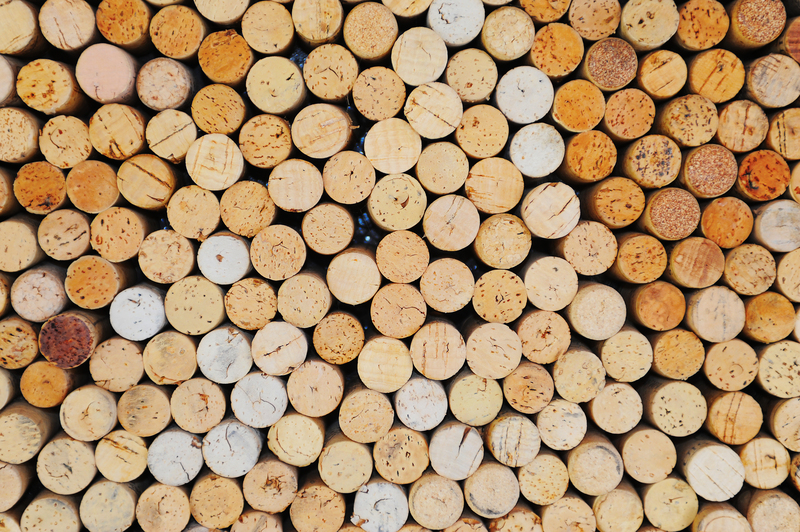Proven Tips for Managing Household Waste
Managing household waste efficiently is no longer just a matter of convenience--it's a crucial aspect of sustainable living. As the world generates more garbage than ever before, effective household waste management has become vital for protecting the environment, conserving resources, and maintaining healthy communities. Whether you're aiming to reduce your carbon footprint or simply keep your home tidy, these proven tips for managing household waste will help you transform waste into a resource and build eco-friendly habits for your family.

Understanding Household Waste and Its Impact
Household waste, or domestic waste, refers to the everyday garbage produced in residential homes. This typically includes food scraps, packaging, plastics, glass, paper, electronic items, and garden clippings. According to recent statistics, the average person generates several pounds of waste daily, much of which ends up in landfills and pollutes the environment.
The consequences of poor home waste management are severe--it contributes to greenhouse gas emissions, water pollution, habitat destruction, and resource depletion. By implementing smart and proven strategies, families can make a meaningful difference.
Proven Tips for Reducing, Reusing, and Recycling Household Waste
1. Embrace the 3 R's: Reduce, Reuse, and Recycle
- Reduce: The most effective way of managing household waste is to prevent it from accumulating in the first place. Buy only what you need, choose products with minimal packaging, and opt for reusable items.
- Reuse: Find creative ways to repurpose items that would otherwise be thrown away. Glass jars make excellent storage containers, old clothing can become cleaning rags, and sturdy boxes can be used for organization.
- Recycle: Sort your waste according to your local recycling program. Make sure plastics, glass, and paper products are clean and placed in the correct bins to improve recycling rates.
2. Compost Your Organic Waste
Composting is the ultimate method for managing household organic waste. Food scraps and yard trimmings decompose naturally to create nutrient-rich compost, which can be used in your garden. Not only does this keep biodegradable materials out of landfills, but it also gives you a free, eco-friendly fertilizer.
- *Keep a countertop compost bin for vegetable peels, coffee grounds, eggshells, and fruit waste.*
- Maintain the right balance of "green" (nitrogen-rich) and "brown" (carbon-rich) materials for optimal decomposition.
- Turn your pile regularly and keep it moist, not soggy, for best results.
3. Shop Wisely to Minimize Waste Production
An important step toward household waste reduction is making mindful purchasing decisions. Whenever possible, choose products that are:
- Sold in bulk or with minimal packaging
- Reusable or refillable, such as water bottles and cleaning sprays
- Packaged in recyclable materials (like glass or cardboard)
- Durable, so they'll last longer and reduce the need for frequent replacement
*Bringing your own bags for shopping and refusing single-use plastics can significantly cut down on garbage, too.*
4. Set Up a Home Recycling Station
To make recycling a habit, create a dedicated recycling area in your home. Equip it with separate labeled bins so everyone in your household can effortlessly sort:
- Plastics (check local guidelines for which types are accepted)
- Glass jars and bottles
- Aluminum cans
- Paper and cardboard
*Educate your family on what can and cannot be recycled, and clean recyclables before placing them in bins to avoid contamination.*
5. Properly Dispose of Hazardous and Electronic Waste
Items like batteries, electronics, cleaning chemicals, and old paint should never go in regular trash bins. These materials are classified as hazardous waste and require special handling.
- Find your community's hazardous waste drop-off locations.
- Look for electronic recycling events or facilities for gadgets and appliances.
- Safely store hazardous materials until they can be properly disposed of.
Smart Ways to Reduce Kitchen, Bathroom, and Garden Waste
Reducing Kitchen Waste
- Plan meals and create accurate shopping lists to avoid overbuying.
- Store perishables properly to maximize shelf-life.
- Freeze leftovers or repurpose them into new dishes.
- Use cloth towels instead of paper towels.
Reducing food waste in the kitchen is one of the most impactful household waste management techniques.
Managing Bathroom Waste
- Use bar soaps and refillable liquid soap dispensers instead of individually packaged products.
- Switch to bamboo toothbrushes and recyclable toothpaste tubes.
- Recycle toilet paper rolls and empty shampoo bottles (if accepted locally).
Dealing with Garden and Yard Waste
- Grass clippings and leaves can be composted or used as mulch.
- Minimize the use of chemical fertilizers and pesticides, which contaminate waste streams.
- Shred branches for use as garden paths or decorative mulch.
Establishing Household Waste Management Routines
1. Educate and Involve the Entire Household
The most effective strategies for home waste reduction involve the participation of everyone under your roof. Hold a family meeting to explain the importance of waste management and demonstrate how to sort, recycle, and compost.
- Assign roles for taking out recyclables and monitoring compost bins.
- Reward consistent efforts with eco-friendly treats or recognition.
2. Schedule Regular Cleanouts
Perform a monthly review of items such as:
- Pantry goods (to prevent expired food waste)
- Closets and storage spaces (to identify donation or upcycle opportunities)
- Under-sink bins (to ensure recyclables aren't wrongly discarded)
3. Support Community Waste Management Efforts
Keeping household waste under control is easier when neighbors work together:
- Host neighborhood swap events for clothes, toys, or books.
- Participate in community composting programs or recycling drives.
- Share tips and resources to spread awareness about better waste management practices.
Technological Solutions for Home Waste Reduction
Modern technology makes managing and reducing household garbage more practical than ever:
- Smart bins can automatically separate recycling from trash and alert you when they're full.
- Waste tracking apps help you monitor your family's consumption and identify areas for improvement.
- Composters equipped with odor-control and fast-rotating mechanisms expedite the composting process, even in apartments.
- Online platforms facilitate the donation and exchange of unwanted items, giving them a second life instead of ending up in landfills.
Dealing with Difficult Household Waste Items
Disposing of Bulky Items
Old furniture, mattresses, and large appliances require special collection or drop-off at municipal facilities. Before disposing, consider if the item can be donated, sold, or recycled.
Managing Hazardous Materials
Never pour paints, oils, medications, or chemical cleaners down drains or toilets. Many pharmacies and local governments offer safe disposal programs for these materials.
Handling Textile Waste
Clothing and linens can be repaired, repurposed, or donated to charities. Some retailers also offer textile recycling services for worn-out items.

Benefits of Effective Household Waste Management
- Conserves natural resources and reduces energy consumption.
- Mitigates greenhouse gas emissions and combats climate change.
- Creates a healthier, less cluttered living space.
- Promotes eco-consciousness and sustainable habits in the next generation.
- Supports community well-being and environmental justice.
Conclusion: Start Managing Your Household Waste Effectively Today
Effective household waste management begins with small, conscious choices that gradually become lasting habits. By reducing, reusing, and recycling, composting organics, shopping smartly, and involving your family and community, you can significantly cut down on household garbage and make a positive impact on the environment. The journey toward a waste-free home may require initial effort, but the environmental and personal benefits are well worth it. Start implementing these proven tips for managing household waste today, and inspire others to join you in creating a cleaner, greener world.
For more resources on effective household waste management, consult your local municipality or environmental organizations--they often provide valuable guides, workshops, and collection services to support your efforts.